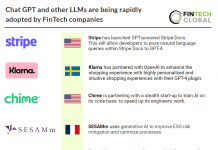Generative AI, or GenAI, has rapidly shifted from a mere discussion point to a pivotal tool in business innovation, offering unprecedented efficiency and smart solutions. Ilya Mokin, head of R&D at Symfa, shares insights into integrating a ChatGPT bot within their in-house ERP system, highlighting the potential and challenges of custom on-demand reports and analytics.
Despite the prominence of OpenAI’s ChatGPT, the landscape of GenAI models is vast and varied, posing significant selection challenges. Factors such as cost, intellectual property ownership, and risk tolerance play crucial roles in navigating this complex field.
GenAI encompasses a range of technologies that use deep learning to generate probable outputs across various modalities including text, images, and audio. The potential economic impact is monumental, with McKinsey estimating an annual value addition of $2.6tn to $4.4tn across multiple sectors.
The choice between open-source and proprietary GenAI models is influenced by cost considerations and infrastructure requirements. For instance, Meta’s Llama and TII’s Falcon offer open-source solutions which, while eliminating per-token costs, require substantial infrastructure investment. Conversely, commercial APIs like ChatGPT might offer cost benefits over time, especially with scaling data requirements.
Data privacy remains a paramount concern, with incidents such as GDPR violations by ChatGPT underscoring the risks involved in adopting proprietary models, particularly in data-sensitive sectors like healthcare and finance. The trade-offs between model performance and privacy need careful evaluation.
Selecting a GenAI model is less about finding the universally ‘best’ option and more about finding the right fit for specific tasks. Tools such as Hugging Face’s leaderboards provide valuable benchmarks, helping users identify models that best meet their particular needs based on various performance metrics.
Beyond just rankings, platforms like OpenRouter facilitate hands-on experimentation with both proprietary and open-source models without the complexities of local deployment. These platforms enhance flexibility in model testing and integration, crucial for adapting to rapidly evolving technological landscapes.
In conclusion, while the allure of cutting-edge GenAI models like OpenAI’s GPT-4 is strong, starting with a well-supported proprietary model can provide a more reliable and cost-effective basis for developing and refining a minimal viable product (MVP). Such strategic choices can significantly mitigate financial risks and enhance the solution’s value to the business.
For more insights into the cost and performance of generative AI models, read the full story here.
Keep up with all the latest FinTech news here
Copyright © 2024 FinTech Global











